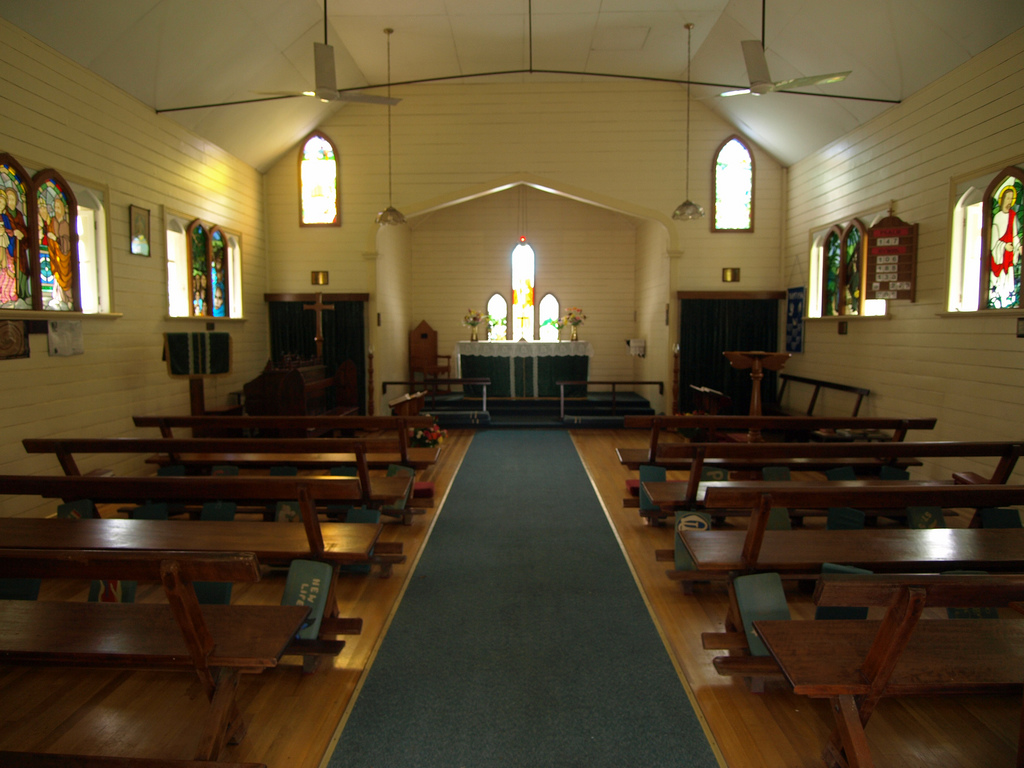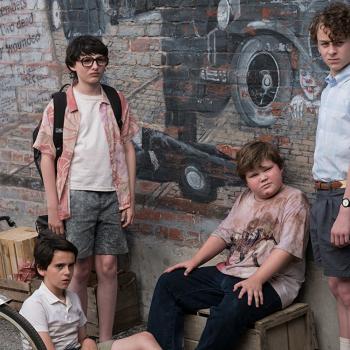 In a previous post, I spoke directly to my Christian community and argued that because we follow a Savior who is the Way, the Truth, and the Life, we do not have to be afraid of “airing our dirty laundry.” We do not have to be afraid of critique or of openly dealing with our flaws. In fact, we can welcome critique because it can help us ultimately grow as faithful followers of Jesus.
In a previous post, I spoke directly to my Christian community and argued that because we follow a Savior who is the Way, the Truth, and the Life, we do not have to be afraid of “airing our dirty laundry.” We do not have to be afraid of critique or of openly dealing with our flaws. In fact, we can welcome critique because it can help us ultimately grow as faithful followers of Jesus.
In this post, I’d like to address those who are not believers in Jesus (and maybe a few who do believe, but who are seriously disillusioned with fellow Christians). I want to seek to answer this question: “Well, if the Church is so flawed, as your own admissions point out, why the heck do you stay in such a flawed Church?”
This post is not an exhaustive list of the reasons, but more of a meditative reflection from where I sit today on why I stay.
1. I love Jesus.
The more I read the Gospels, the more amazed I am at Jesus: His powerful teaching, His constant loving acts of mercy, His ability to zero in on hypocrisy among the religious but to embrace those who are on the outside, His self-sacrificial death, His miraculous resurrection. The way He helps me understand God’s heart toward me. His subversiveness. I can’t think of any figure in all of history who is as compelling. Simply put, I love Jesus. When I have a really bad day with the Church, when I am ready to give up, He brings me back. I love Him. And He is the One who teaches me that as His disciple, I need a community of faith. However pesky they (and I) can be at times.
2. The Bible and the Church help me to grow in love.
When I read the Bible, I find it accurately describing my sin nature and challenging me to change and to grow in love. More importantly, I find that God Himself gives me a source of strength to do this, and He gives me forgiveness when I fail. Because I can actually experience forgiveness, I have the courage to try and to dare to grow in love. Unconditional love has that effect on a person.
Furthermore, I find that because of the continuing renewal of both hearing God’s Word and of being surrounded by fellow Christians who encourage and challenge me, I actually have seen myself change over time. I have seen myself become a more loving and fair person than I was before. I have a long way to go, but the fact is that the Christian faith, my Christian community, and God Himself have brought actual positive change in my life. Take just one example: while the evangelical church has a lot of work to do on race relations, it was actually evangelicals who helped me to begin to come to terms with the reality of my white privilege. Yeah, other voices were also helpful in understanding this, but the core heart change came through evangelicals’ influence. I could cite many more examples as well.
3. What Christianity has at its core is grace (however imperfectly Christians sometimes express it).
Whenever I encounter sin and brokenness in the Church, I am admittedly very discouraged by it. But here’s the thing: what Christianity has is grace. Sometimes we fail to express it, sometimes we express it inappropriately (in a way that fails to hold each other accountable), but when we do it right, it is really something.
The core of Christian community is forgiveness. Because God has been gracious and forgiving to me, I am then obligated to extend forgiveness to my brother or sister. (Note: this does not mean my brother or sister is then free to naively be put in situations where they may harm others, in cases of abuse, for instance, but simply that as boundaries are set, I am to treat my brother or sister as a fellow sinner and child of God who is loved and forgiven by God.)
In Dietrich Bonhoeffer’s Life Together, he writes of the disillusionment that Christians sometimes have with Christian community. How can this company of sinners truly be the place where we experience God’s love? But Bonhoeffer writes:
He who loves his dream of a community more than the Christian community itself becomes a destroyer of the latter, even though his personal intentions may be ever so honest and earnest and sacrificial.
In my cries to the Christian community to reform areas which are wrong and contrary to God’s love and Word, it can be easy to refuse to love certain people within it until they “get their act together.” But what Bonhoeffer is pointing to here is that God wants me to engage in the messy work of relationship with people right now, not waiting for perfection that will never arrive. After all, Paul wrote this,
You see, at just the right time, when we were still powerless, Christ died for the ungodly. Very rarely will anyone die for a righteous person, though for a good person someone might possibly dare to die. But God demonstrates his own love for us in this: While we were still sinners, Christ died for us.–Romans 5:6-8 NIV
The vicarious death of Christ came about for me when I was furthest from Him.
God loves me when I am at my worst. He doesn’t wait to love me till I “get my act together.” He seeks to help me change, yes, but He loves me unconditionally right here in this moment. That is the love that I also must show to my brothers and sisters in Christ. (That is also the love I am called to show to those who are not believers.)
Bonhoeffer goes on to say:
Will not [my brother’s] sin be a constant occasion for me to give thanks that both of us may live in the forgiving love of God in Jesus Christ? Thus the very hour of disillusionment with my brother becomes incomparably salutary, because it so thoroughly teaches me that neither of us can live by our own words and deeds, but only by that one Word and Deed which really binds us together–the forgiveness of Jesus Christ.
Yeah, the Church drives me nuts at times. But think of how I drive my brothers and sisters nuts also! I think of my own sins and failures. And I think of the fact that just as God does not give up on me, my brothers and sisters do not give up on me either. We stay engaged with each other, even though it’s tremendously hard sometimes. We forgive each other, even though that is also tremendously hard at times. We mutually experience God’s grace and forgiveness. We don’t always live this way (see this post), but when this grace does come through, when we “get it,” it is a beautiful thing to see and something that I have not found anywhere else in the world.
4. The Church is where I hear God’s Word.
Finally, I stay in the Church because that is where I hear God’s Word. The Bible was meant to be heard with other people, not just in isolation in a “personal quiet time.” Other Christians hear more in the Bible than I would hear on my own. They challenge and refine me. None of us get this God stuff perfectly. That’s why we need each other. All of us have specific sins that we are prone to. That’s why we need each other.
And so I stay…
The Church can be one of the most perplexing and frustrating places on earth. It also can be one of the most wonderful, life-transforming places on earth. In the moments when I am most frustrated with God’s people, I thank God that He holds onto me–and not the other way around.
I stay in the Church, not because I summon up enough faith to stay, but because, for whatever reason, God has helped me to believe. I stay in the Church because He loves me and never gives up on me.
Thanks for sticking around to listen to these thoughts.
——————-
Community discussion guidelines:
Because this is a Christian blog, the things I’m talking about will obviously be topics that people feel strongly about in one direction or another. Please keep in mind that this is a place for substantive, respectful conversation. All perspectives are welcome to discuss here as long as all can treat each other with kindness and respect. Please ignore trolls, refuse to engage in personal attacks, and observe the comment policy listed on the right side of the page. Comments that violate these guidelines may be deleted. For those who clearly violate these policies repeatedly, my policy is to issue a warning which, if not regarded, may lead to blacklisting. This is not about censorship, but about creating a healthy, respectful environment for discussion.
P.S. Please also note that I am not a scientist, but a person with expertise in theology and the arts. While I am very interested in the relationship between science and faith, I do not believe I personally will be able to adequately address the many questions that inevitably come up related to science and religion. I encourage you to seek out the writings of theistic or Christian scientists to help with those discussions.
———————-
photo credit: certified su via photopin cc















